Christmas is a time of celebration when many people take the opportunity to relax and reflect, not only on the year gone by, but on the year ahead.
But what impact can the festive season have on people suffering from dementia, their carers and their families?
According to Jeni Sinclair, the Dundee-based dementia advisor with Alzheimer Scotland’s National Dementia Advisor Service, the impacts can vary.
“Christmas for a lot of people is a good time,” said the 52-year-old former pupil of Glebelands Primary and Morgan Academy who grew up in Dundee’s Hilltown.
“But for people with dementia it can be quite stressful.
“Too much noise, too many people, there’s lots of things happening and routine is out of kilter.
“Your diet can be changing, your day to day activities can be different.
“Christmas can throw routines into freefall.
“On a positive note, it’s nice for a lot of people because families get together, and it’s nice for the generations to get together as well.
“But Christmas can also throw routines into freefall”.
What support is offered by the V&A Dundee dementia cafe?
Jeni explained that Alzheimer Scotland have a guide on how to support someone with dementia through Christmas.
It’s just one of the resources available when V&A Dundee hosts its latest dementia café, in partnership with Alzheimer Scotland, on December 19.
Dementia cafes are community spaces designed to provide support, social interaction, and a safe environment for individuals living with dementia, as well as their families and caregivers.
V&A Dundee communities producer Peter Nurick says the concept has grown from “strength-to-strength” since V&A Dundee held its first dementia café in September 2022.
The first café welcomed 18 people and, just over a year later, attendance is now regularly around 50.
Those attending are a mixture of regular visitors and new faces.
“This demonstrates the positive impact the monthly dementia cafes are having within the community,” he said.
“This year at V&A Dundee, dementia cafés, musical events for those with dementia and their carers, a care home day out, and a cancer support conference have allowed the museum to be used in many different ways, creating a busy civic space that places a renewed focus on health and wellbeing for vulnerable and isolated communities.”
What’s the scale of dementia in Dundee, Tayside and Fife?
A special report by The Courier’s data team recently highlighted how Alzheimer’s and dementia touch almost every family in our communities.
Whether it is robbing loved ones of their cherished memories or piling pressure onto relatives who often act as carers, the impact is undeniable.
Analysis showed that deaths linked to dementia have more than tripled across Scotland from 2000 to 2022 – including in Dundee and Fife.
With an ageing population and dementia cases on the rise, dementia cafes aim to offer a welcoming and understanding atmosphere where people affected by dementia can gather, share experiences, and engage in various activities.
Services offered include support and information, social interaction, activities, a safe environment respite for caregivers and education and training.
Dementia cafes are part of a broader movement to create dementia-friendly communities that promote awareness, understanding, and inclusivity for those affected by dementia.
There are also ongoing efforts to reduce stigma.
Why are more younger people being diagnosed with dementia?
More and more people are being diagnosed because they are living longer.
However, with greater demands on budgets, Jeni points out that it’s not just older people where dementia numbers are rising.
“We have the traditional 75+, 85+ type age group being diagnosed,” she said.
“But unfortunately there are more younger people in their 40s, 50s being diagnosed now as well.
“A good way of putting this is down to lifestyle choices – some people are being diagnosed early because throughout their life they’ve made lifestyle choices (drink/drugs) that perhaps has contributed to them having a diagnosis of dementia.
“But what we are trying to do now is look at preventative measures.
“There’s a big emphasis on brain health Scotland – prevention – which is aimed at younger people.
“As they go through their life they will hopefully make choices that are good for their health.
“It’s about raising awareness and prevention for those younger people.”
How has V&A Dundee dementia cafe benefited Broughty Ferry couple?
Jeni said that because it’s quite an eclectic mix of people, the services needed across that age range vary.
One older couple who’ve benefited from peer support available – and who’d highly recommend attendance at the very informal and sociable dementia cafes – are Broughty Ferry couple Malcolm and Pam Hazelwood.
Malcolm – who previously featured as part of The Courier’s special report on dementia – is one of those who struggles to deal with noise at Christmas.
Five years after being diagnosed, the 84-year-old retired factory worker says living with dementia is like navigating a Swiss cheese.
Every so often, he falls into holes in his mind and gets lost.
Aside from laughing, the best thing he and his wife Pam can do is find ways to “unlock memories” so that he can “climb back out”.
Malcolm is on good form when The Courier catches up with the couple again at their home in Broughty Ferry.
The Christmas decorations are up and there’s a festive feel about the place as we sit down over a mug of coffee to talk about living with dementia.
An Abba CD is playing quietly in the background.
Photos on the wall include their grandchildren and great grandchildren.
Books of family photographs on the coffee table have been created by their grown-up children to help stimulate old memories.
It quickly becomes clear that Malcom is keen to talk.
He’s originally from Lutterworth in Leicestershire where he met Pam while working as a factory worker.
Soon after meeting, Malcolm and Pam married and went on to have children.
The couple, who now have six grandchildren and four great grandchildren, moved up to Broughty Ferry from Tunbridge Wells in 2015 to be closer to their daughter, Helen.
But for all his chattiness, Pam explains that her husband now struggles to instigate conversation.
His confidence has taken a hit since his diagnosis in 2018.
He needs prompted.
He also sometimes now gets emotional which he “never used to do”.
When he does get going, though, it’s as if a box of memories is being unlocked.
What do Malcolm and Pam think of the V&A Dundee dementia cafe?
Malcolm and Pam are full of praise for the “brilliant” staff and volunteers at Alzheimer Scotland.
They ‘ve been to several dementia cafes in the past, including at V&A Dundee and St Aidan’s Church in Broughty Ferry.
They also enjoy “boogie” events.
By going to the dementia cafes, Pam said Malcolm has realised he’s “better than some” in terms of conversational abilities.
Significantly, he’s now more confident about speaking with others.
While Malcolm matter-of-factly states that he knows he’ll “go loopy” one day, he’s found previous dementia café visits helpful.
He’s also seen the benefits for his wife who’s had the opportunity to speak with other carers.
However, he’s also adamant he doesn’t want to end up in a care home like his dad did many years ago.
“When we were in Kent you saw people who would be standing looking out the window of care homes,” he said.
“That’s the kind of place where my dad ended up. We’d visit and there must have been 50 old ladies sitting in rows with one TV.
“They were all shouting with the TV turned full up so the ones at the back could hear it. It was madness.
“Put it this was way we wouldn’t want to end up there!”
Pam says dementia for each person is “completely different”.
Admitting she can be “quite volatile”, she’s had to learn to not lose her temper.
She laughs that she has to “do a Shirley Valentine and talk to the wall”.
If she shouts at her husband, it upsets him.
However, taking the view that they need to “keep laughing” about life, she describes the V&A dementia cafe as “brilliant”.
How and when to visit the V&A Dundee dementia cafe
The next Let’s Talk V&A Dundee drop-in dementia café, run by Alzheimer Scotland, is free and runs from 2pm until 3.30pm on December 19.
There’s no need to book.
Other V&A cafes are planned, generally on the third Tuesday of the month, throughout 2024.
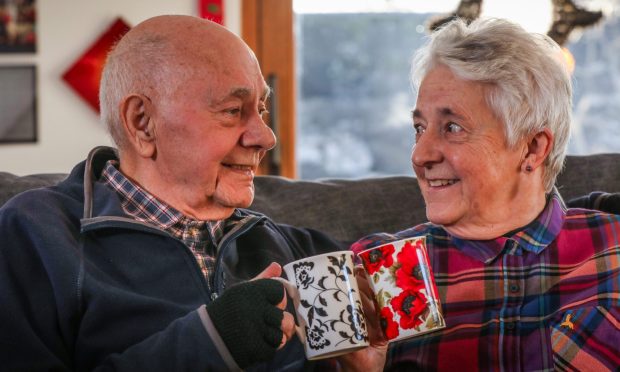

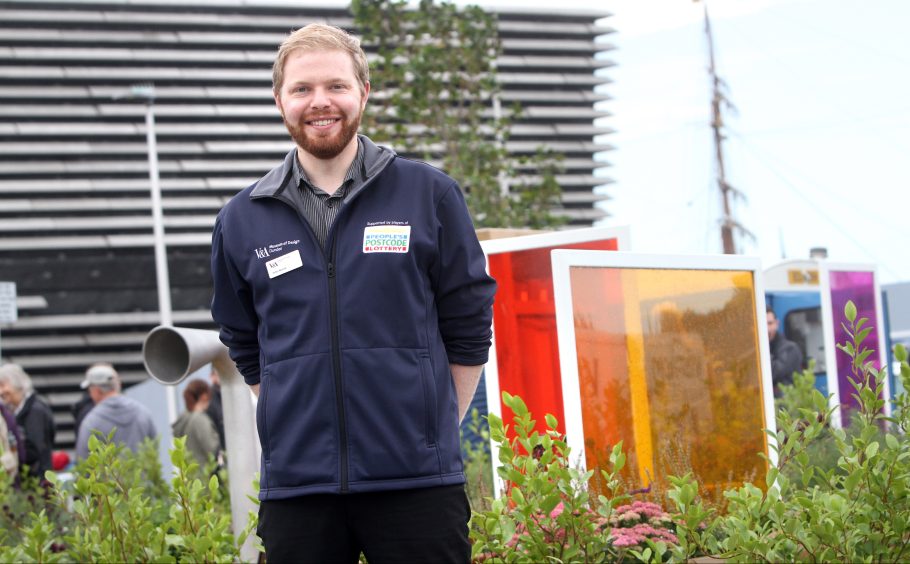
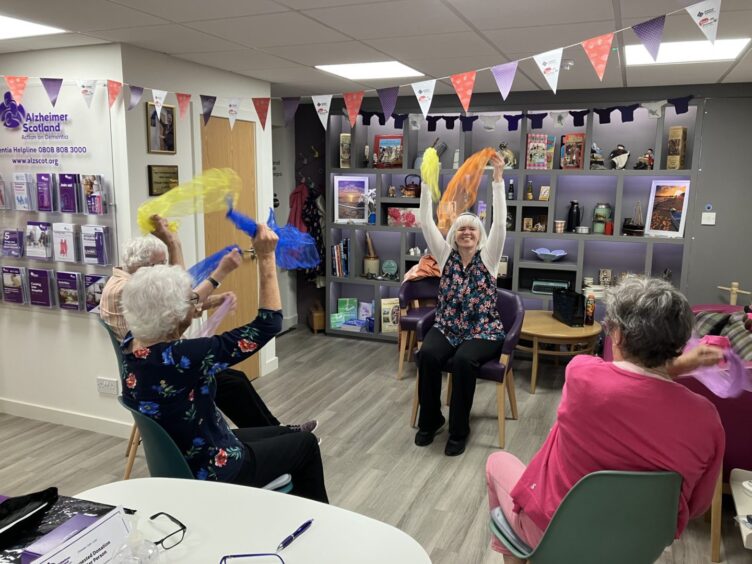
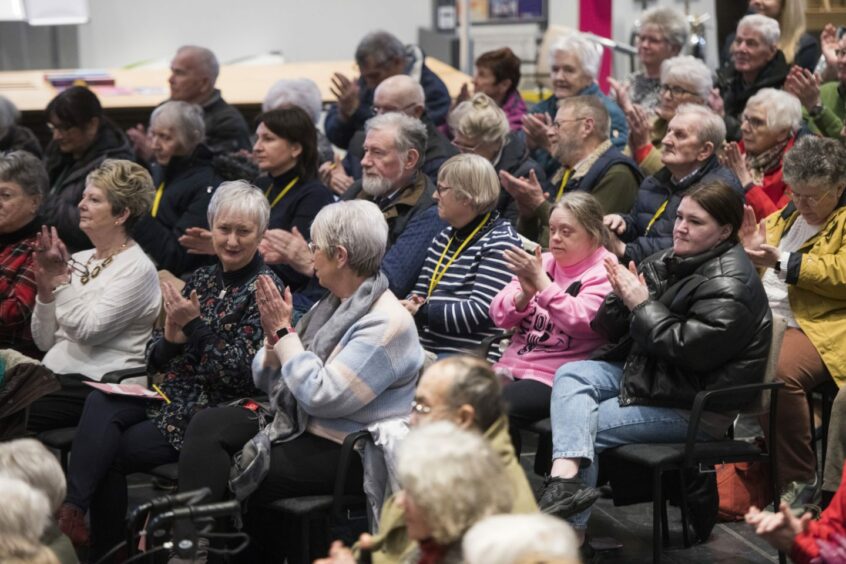
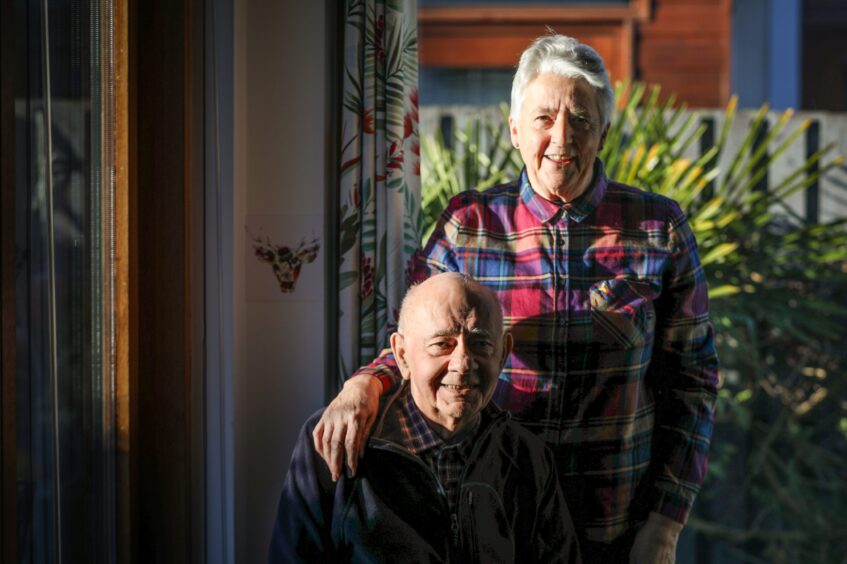
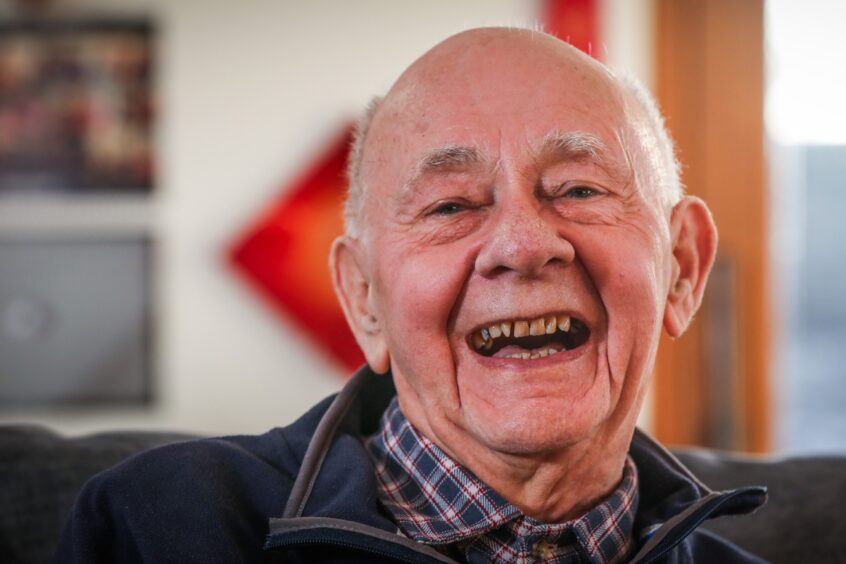
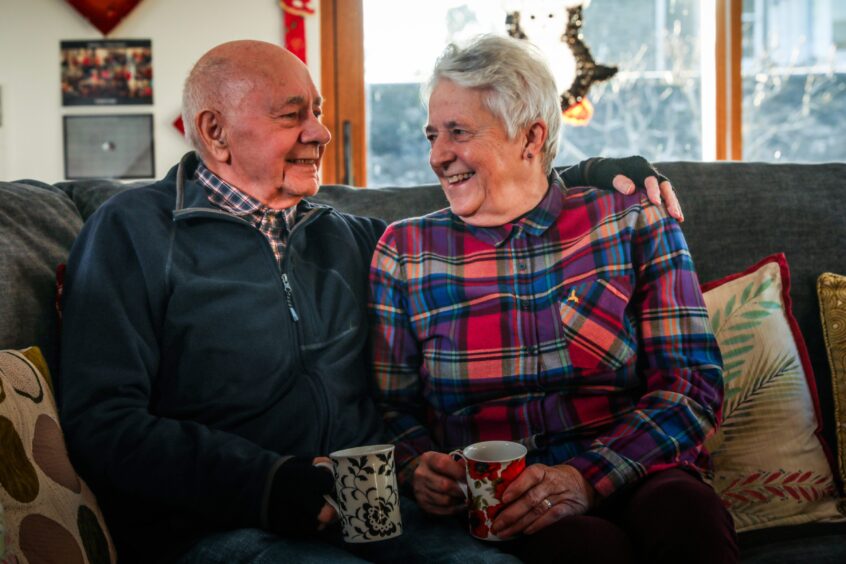

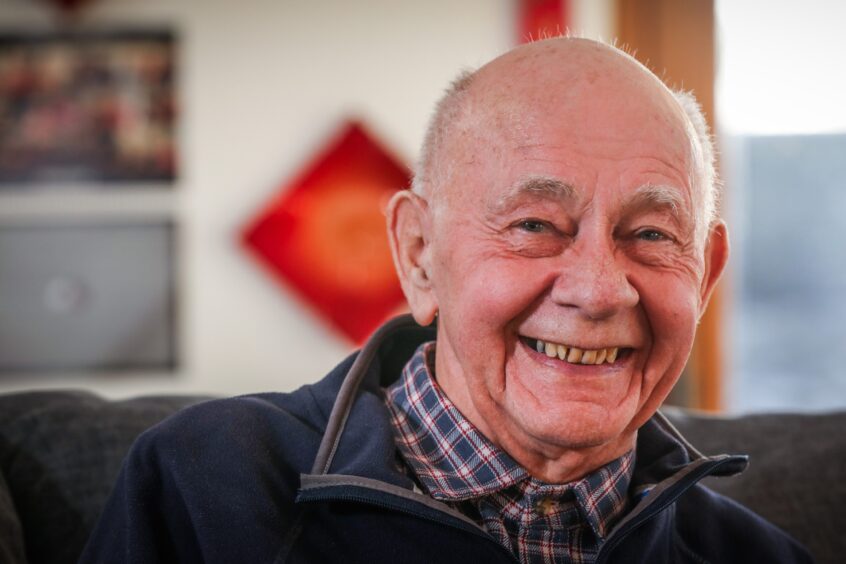



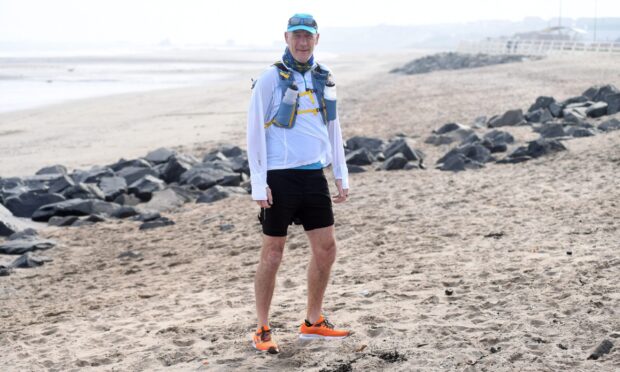
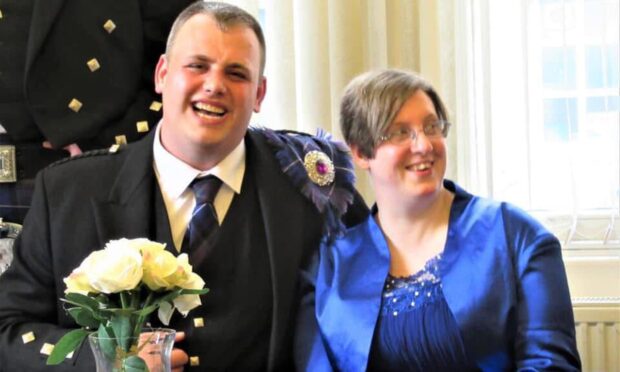
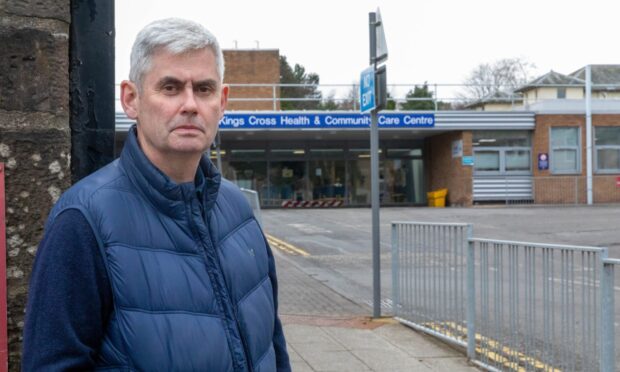
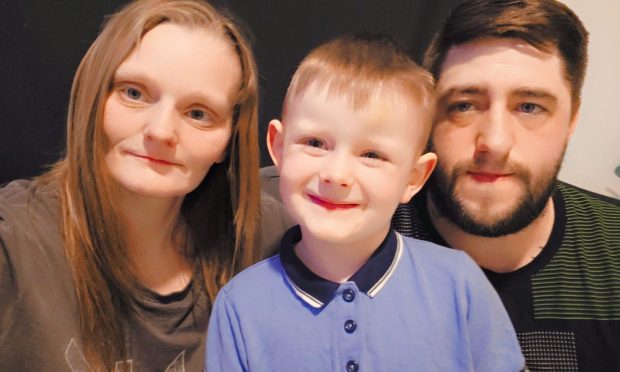
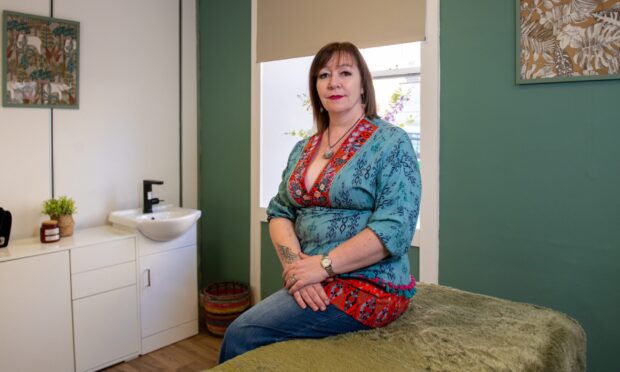
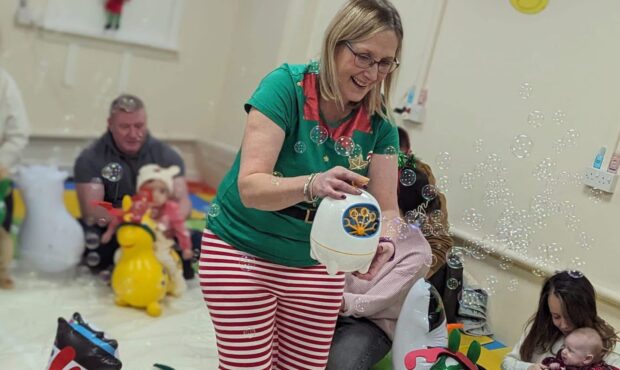
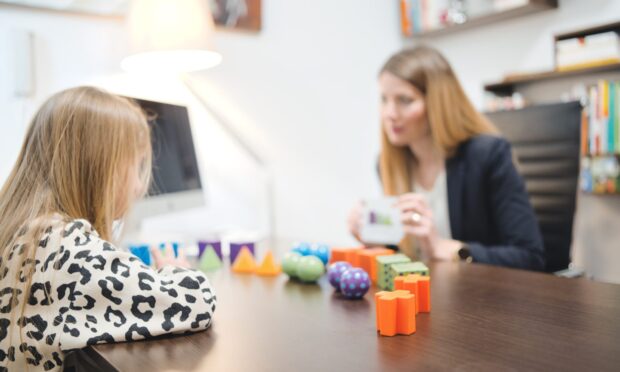
Conversation